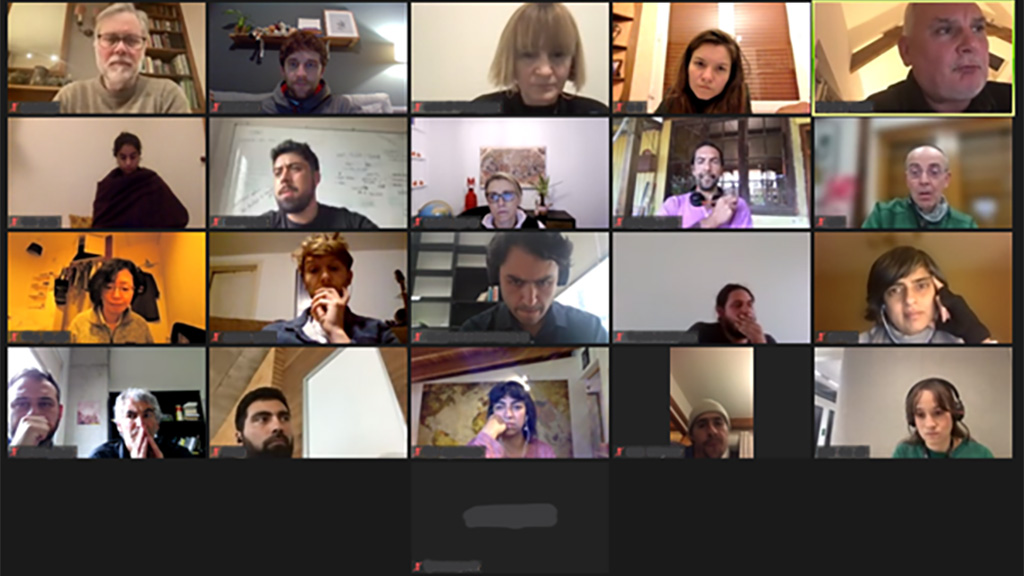Convergence with Universidad Austral de Chile
Current student Mark Sim blogs on a recent meeting of minds combining our MA Regenerative Economics with a Human-Scale Development and Ecological Economics programme based in central Chile.

Students on the two courses convene via Zoom.
In late 2022 two centres of learning with a key focus on ecological and social transformation reached out halfway across the globe with the desire to connect. Students from Schumacher College’s Regenerative Economics programme were invited to join their contemporaries from the Universidad Austral de Chile’s course on Human-Scale Development and Ecological Economics; two courses inspired by equally groundbreaking economists in E.F. Schumacher and Manfred Max-Neef. The intention was to sow the seeds of a relationship between the two colleges through the current cohort of students in order to share different global perspectives and learnings on economics and development, and to work towards a goal of nurturing a continued collaborative and flourishing learning community linking not only Devon and Valdivia, but the Global North with the Global South.
On 7 December the convergence happened; through the wonders of the internet students and staff from the two courses came together for the first time and connected. Despite our lack of proximity and having to settle with a boxed 2-dimensional zoom meeting, it felt, following the impressive cross-lingual introductions at the start of the conversation, that we were in the same room physically; and as the conversation developed, it felt like we were also in a similar ontological space too.
Once we had all introduced ourselves, and the blushes from the Schumacher students had faded after valiant attempts at Spanish, we broke up into small groups for more intimate discussions. In advance of the convergence and to stimulate conversation, each course collectively prepared (and answered) a set of five questions for the other to respond to, along themes such as that of economic transformation, human-scale development, geopolitics, social and ecological justice, complexity in a regenerative economy, growth and alternative indicators of progress, and global north/south asymmetries. The well-curated responses provided a rich and contextual understanding of one another’s perspectives, which we unpacked and delved into in our discussions.
Like many online meetings, however, as fruitful discussions emerge and ideas start to generate, a pop up appears to remind us that we have mere seconds to wrap up; our group is crumpled up and unfolded again in the plenary meeting. We join once again with the whole group for sharing, reflections, and opening up the dialogue.
For an introductory session between the groups we found it to be incredibly valuable first to become better acquainted with one another, and second to share our desire to use this convergence as a first step in building a collaborative relationship between Schumacher College and Universidad Austral de Chile. The next step, however, is to figure out the best way to do that, and to keep the relationship alive. The academic year can seem fleeting, with current cohorts eventually giving way to the new. Yet in our discussion we mentioned the importance of helping to ensure a continuation of important work and ideas, such as that of Schumacher and Max-Neef. It’s our shared hope that we too, as a collective, can work to lay the foundations of a collaboration which future students can carry forward.
We thank those from Universidad Austral de Chile who joined us. Hasta la proxima!
– Mark Sim, February 2023
Find out more about studying MA Regenerative Economics and apply to join the programme in September via the button below.
